Description
ABSTRACT
An Analysis of the Consent Requirement of Section 84 of the Sheriff and Civil Process Act 2004 and the Judgement Enforcement Power of Courts
Chimezie Onuzulike*
One of the methods of enforcing judgments for the payment of money is by way of garnishee proceedings. By garnishee proceedings, the court is empowered to attach monies which a third party called the garnishee owes the judgment debtor in satisfaction of the judgment debt. Where money liable to be attached by garnishee proceedings is in the custody or under the control of a public officer in his official capacity, Section 84 of the Sheriff and Civil Process Act 2004 requires that the consent of the Attorney-General of the Federation or State be obtained before such attachment may be made. This provision appears to grant the Attorney-General some discretion to determine whether certain judgments of courts may be enforced against monies in custody or control of a public officer. This Paper examines the rationale behind the consent requirement under the Sheriff and Civil Process Act vis-a-vis the judgment enforcement powers of Courts. The paper emphasises that the consent of the Attorney-General is not a mandatory requirement for attachment of money in the custody or control of a public officer in his official capacity. The Paper concludes that all that is required is that the Attorney-General is duly notified of any such proposed attachment as the Court reserves the power to proceed with garnishee proceedings where the Attorney-General without reasonable excuse refuses and/or neglects to grant consent within a reasonable time.
Keywords: Garnishee Proceedings, Attorney-General, Judgment, Judgment Enforcement.
INTRODUCTION
Judgments and orders of Courts are usually determinations of rights in the actual circumstances of which the court has cognizance and give some particular relief capable of being enforced.1 A successful party in an action is entitled to reap the fruit of the Judgment. Consequently, apart from the jurisdiction to entertain a matter and deliver a judgment, the Courts are equally clothed with the jurisdiction to enforce any judgment they deliver.2 Where there is voluntary compliance with the judgment of a court then the question of enforcement becomes unnecessary. However, the unsuccessful party (ie the judgment debtor) in most cases would hardly comply voluntarily with a judgment and this may necessitate the invocation of the coercive power of the Court to enforce the judgment in exercise of its judicial powers vested in it under the Constitution of the Federal Republic of Nigeria 1999 (the ‘1999 Constitution’). The power of the Court to enforce its own judgments is the fulcrum upon which it proceeds to adjudicate over a matter, since judgments of the Courts must be enforced as the Courts do not act in vain.
* LL.B (First Class Honours), BL. Associate at G. Elias & Co, Lagos Nigeria.
- Government of Gongola State v Tukur [1989] 4 NWLR (part 117) 602.
- See The Constitution of the Federal Republic of Nigeria 1999 (as amended) CFRN, ss 6(6)(b) and 287(3).

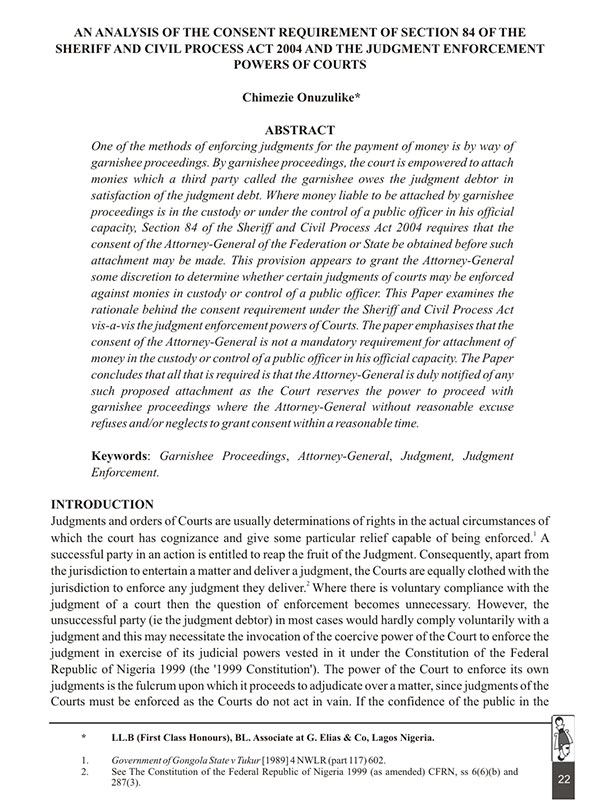
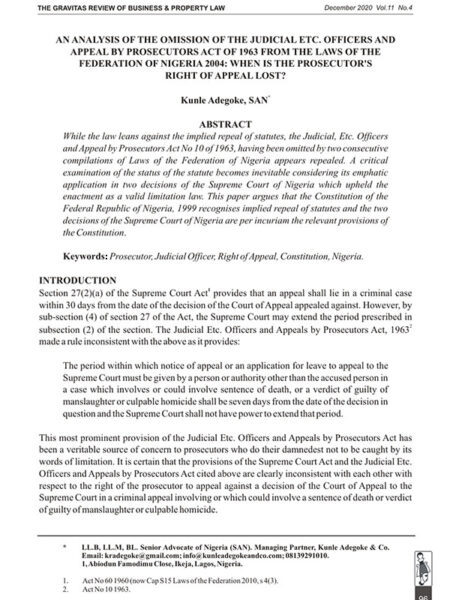
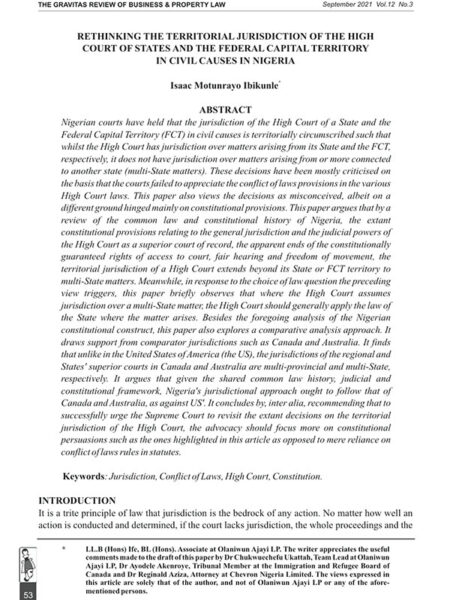
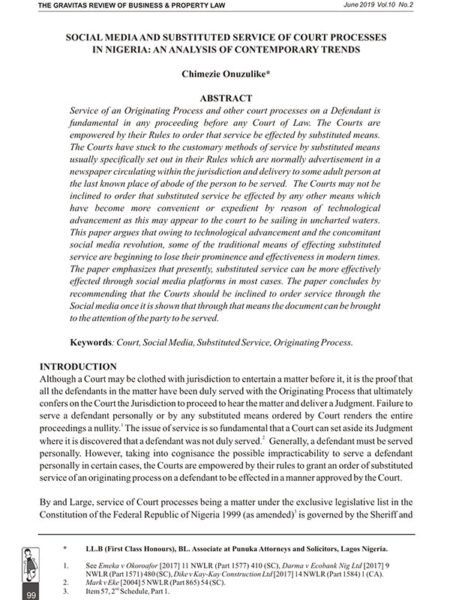
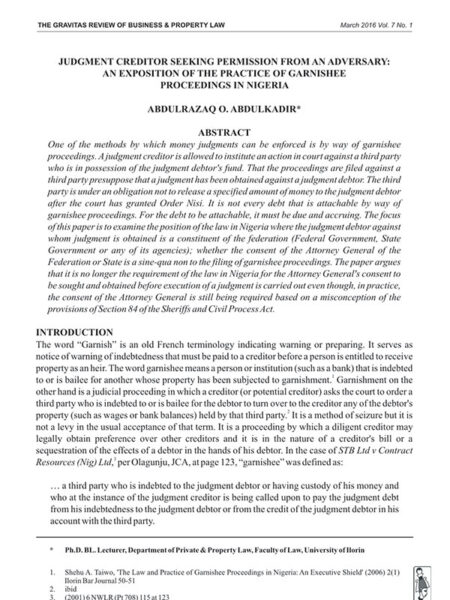


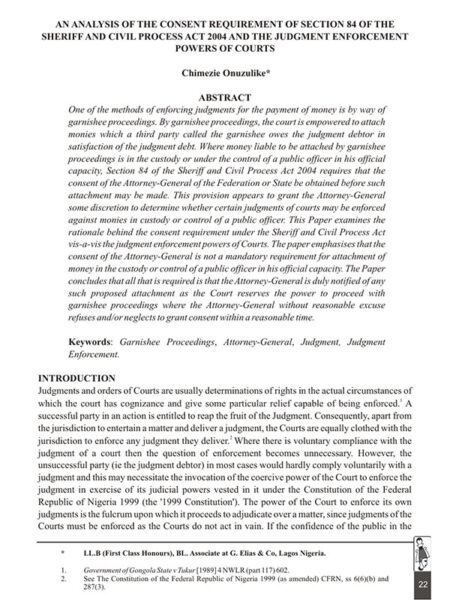
Reviews
There are no reviews yet.